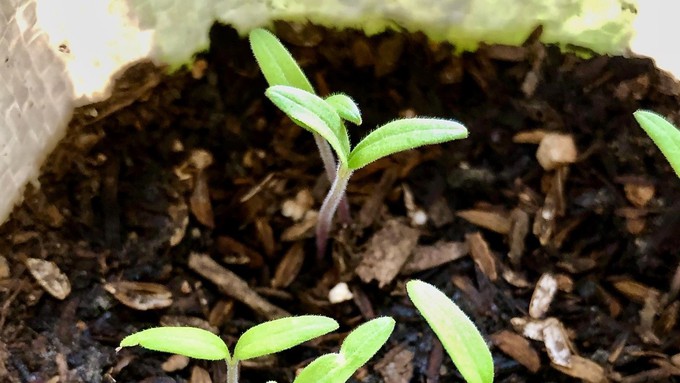
Yolo County master gardeners offer morning Zoom class

Tomatoes can still be started in time for April or May planting. Yolo's "Kitchen Garden Chat" will include information on starting seeds. Kathy Morrison
What's a gardener to do? There's a very good chance this Saturday will be too wet to garden. And the 100th Sacramento Camellia Show (thankfully indoors) doesn't open on Saturday until 3 p.m. (It runs until 6 p.m.; Sunday is 10 a.m. to 5 p.m.)
But, stuck inside on a Saturday morning, gardeners still can get their green on. From 10 a.m. to 11 a.m., online via Zoom, the Yolo County master gardeners will present their monthly "Kitchen Garden Chat." The talk is free, and no registration is required. The Zoom link is https://ucanr.zoom.us/j/98028723763
March is an important month for area vegetable gardeners. Yolo master gardener Treva Valentine will go over what needs to be done in the edible garden during the month: what to plant, what to harvest and other important chores. She will also share details about starting edibles from seed and how to prepare the soil. This talk is part of an ongoing series.
The Yolo master gardeners have several events coming up -- most on Zoom -- but the next one, a flower-arranging class on Monday, March 4, will be in person from 1 to 5 p.m. at the West Sacramento Community Center, 1075 West Capitol Ave.
Upcoming Zoom classes include "Backyard Composting," 3-4 p.m. March 14, and "Vermiculture" (Worm Composting) from 3 to 4 p.m. March 28. The Yolo master gardeners also staff a "Questions and Answers" desk the first and third Saturdays of the month at the West Sacramento Lowe's store.
To get Zoom links and more information on Yolo County master gardener events, visit https://yolomg.ucanr.edu/?calendar=yes.
Comments
0 comments have been posted.Sacramento Digs Gardening to your inbox.
Food in My Back Yard Series
April 1: Don't be fooled by these garden myths
March 25: Fertilizer tips: How to 'feed' your vegetables for healthy growth
March 18: Time to give vegetable seedlings some more space
March 11: Ways to win the fight against weeds
March 4: Potatoes from the garden
Feb. 25: Plant a fruit tree now -- for later
Feb. 18: How to squeeze more food into less space
Feb. 11: When to plant? Consider staggering your transplants
Feb. 4: Starting in seed starting
Sites We Like
Garden Checklist for week of March 30
Your garden doesn’t mind April showers. Get busy now to enjoy those future flowers.
* Get ready to swing into action in the vegetable garden. As nights warm up over 50 degrees, start setting out tomato, pepper and eggplant transplants.
* From seed, plant beans, beets, cantaloupes, carrots, corn, cucumbers, melons, pumpkins, radishes and squash. (Soak beet seeds overnight in water for better germination,)
* Plant onion sets.
* In the flower garden, plant seeds for asters, cosmos, celosia, marigolds, salvia, sunflowers and zinnias.
* Transplant petunias, zinnias, geraniums and other summer bloomers.
* Plant perennials and dahlia tubers for summer bloom.
* Transplant lettuce and cabbage seedlings.
* April is the last chance to plant citrus trees such as dwarf orange, lemon and kumquat. These trees also look good in landscaping and provide fresh fruit in winter.
* Smell orange blossoms? Feed citrus trees with a low dose of balanced fertilizer (such as 10-10-10) during bloom to help set fruit. Keep an eye out for ants.
* Apply slow-release fertilizer to the lawn.